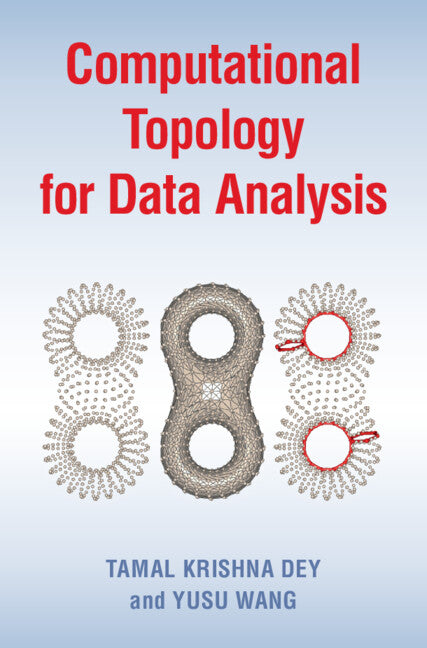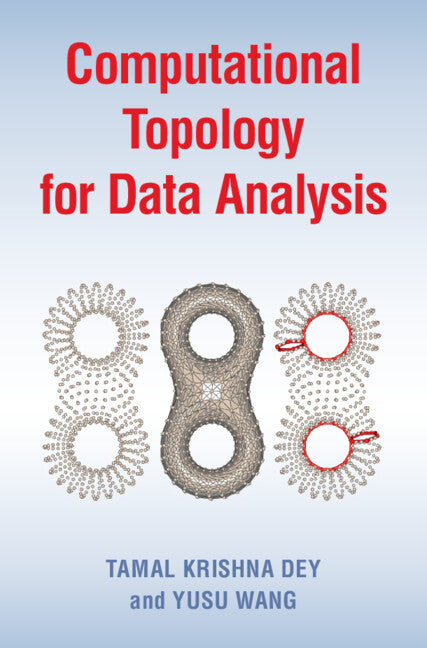Freshly Printed - allow 4 days lead
Couldn't load pickup availability
Computational Topology for Data Analysis
This book provides a computational and algorithmic foundation for techniques in topological data analysis, with examples and exercises.
Tamal Krishna Dey (Author), Yusu Wang (Author)
9781009098168, Cambridge University Press
Hardback, published 10 March 2022
452 pages
23.4 x 15.5 x 3 cm, 0.78 kg
'As a complete package, the book is an ideal text for a first course on topological data analysis for beginning graduate students … Highly recommended.' M. Clay, Choice
Topological data analysis (TDA) has emerged recently as a viable tool for analyzing complex data, and the area has grown substantially both in its methodologies and applicability. Providing a computational and algorithmic foundation for techniques in TDA, this comprehensive, self-contained text introduces students and researchers in mathematics and computer science to the current state of the field. The book features a description of mathematical objects and constructs behind recent advances, the algorithms involved, computational considerations, as well as examples of topological structures or ideas that can be used in applications. It provides a thorough treatment of persistent homology together with various extensions – like zigzag persistence and multiparameter persistence – and their applications to different types of data, like point clouds, triangulations, or graph data. Other important topics covered include discrete Morse theory, the Mapper structure, optimal generating cycles, as well as recent advances in embedding TDA within machine learning frameworks.
1. Basics
2. Complexes and homology groups
3. Topological persistence
4. General persistence
5. Generators and optimality
6. Topological analysis of point clouds
7. Reeb graphs
8. Topological analysis of graphs
9. Cover, nerve and Mapper
10. Discrete Morse theory and applications
11. Multiparameter persistence and decomposition
12. Multiparameter persistence and distances
13. Topological persistence and machine learning.
Subject Areas: Pattern recognition [UYQP], Mathematical theory of computation [UYA], Data capture & analysis [UNC], Topology [PBP], Geometry [PBM], Data analysis: general [GPH]


